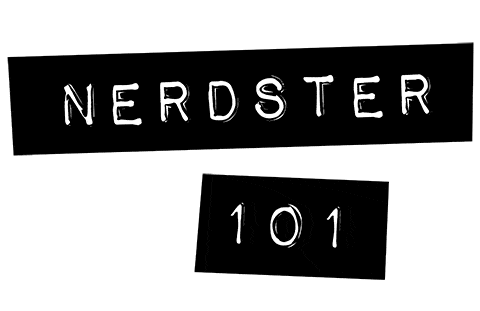“It’s only because of their stupidity that they’re able to be so sure of themselves.” – Franz Kafka, The Trial
– Franz Kafka, The Trial
“The right understanding of any matter and a misunderstanding of the same matter do not wholly exclude each other.”
Introduction
This succinct summary offers a comprehensive exploration of Franz Kafka’s The Trial, delving into its key themes, characters, and motifs. In just a few minutes, you’ll gain a deep understanding of this seminal work of existentialist literature.
Book Information
Title: The Trial
Author: Franz Kafka
Genre: Fiction, Absurdist Fiction, Philosophical Fiction
Publication Year: 1925
Brief Overview
The Trial is a surreal, angst-ridden novel that explores the themes of guilt, law, and the dysfunctional bureaucratic system.
Background
Author’s Background
Franz Kafka was a German-speaking Bohemian-Jewish novelist and short story writer. His works, blending elements of realism and the fantastic, typically feature isolated protagonists facing bizarre or surrealistic predicaments and incomprehensible socio-bureaucratic powers.
Publication Context
The Trial, published posthumously in 1925, reflects Kafka’s views on law and bureaucracy. It has been influential in existentialist and absurdist literature.
Character Summary
Main Characters
– Joseph K., a respectable chief clerk in a bank, is the protagonist who is arrested and prosecuted by an inaccessible authority.
– Fraülein Bürstner, K.’s neighbor, who is involved in K.’s attempt to resist the trial.
– The Advocate Huld, a lawyer whom K. hopes will help with his case.
Character Development
The characters in The Trial remain primarily static. Kafka presents a chilling portrayal of a man trapped in an unfathomable bureaucratic system.
Plot Summary
Overview
Joseph K. is arrested without knowing why. Over the course of a year, he struggles to understand his case, guided by various dubious advisers, but eventually gets executed.
Setting
The Trial is set in an unnamed city that reflects the sense of claustrophobia and anxiety that permeates the novel.
Themes and Motifs
Key Themes
1. Injustice of the Legal System: Kafka critiques the bureaucratic, opaque, and oppressive legal system.
2. Guilt and Innocence: The Trial explores the arbitrary nature of guilt.
Motifs and Symbols
– Parable: The Trial uses parables to illustrate philosophical concepts.
– Doors: Doors in The Trial symbolize opportunities, but also barriers and the bureaucracy that K. has to navigate.
Takeaway Morals
Morals
The Trial demonstrates the inescapability of a systemic, oppressive bureaucratic machine, reminding readers of the individual’s powerlessness against such forces.
Application
The themes in The Trial are still relevant today, particularly with regards to bureaucracy, the legal system, and the notion of guilt.
Analysis
Literary Devices
The Trial uses irony and dark humor to highlight the absurdity of its world.
Style and Tone
Kafka’s writing style is detached, impersonal, and precise, while the overall tone of the book is one of existential angst.
Critical Reception
Initial Reception
Upon publication, The Trial was met with mixed reviews, some applauding its daring exploration of bureaucratic systems, while others found it confounding.
Current Standing
Today, The Trial is hailed as a masterpiece of 20th-century literature and Kafka’s most important work.
Personal Response
Personal Opinion
The Trial is a perfect guide to anyone wanting to explore the Kafkaesque world – a world where bureaucracy isn’t just a Monday morning problem, but a nightmare so pervasive it could even spoil your Sunday crossword fun. Is it enjoyable? Maybe not in the traditional sense. But it’s a darn good wakeup call!
Recommendation
Recommended for lovers of existentialist literature, or anyone who wants to feel better about not being arrested by a perplexing, inexplicable legal system.
About the Author
Biography
Franz Kafka was a German-speaking Jewish novelist and short story writer from Prague. His work fuses elements of realism and the fantastic.
Literary Career
Despite his work being largely unpublished during his lifetime, Kafka posthumously became one of the most influential writers of the 20th century.
Book Details
Publication Details
Originally published in 1925, The Trial was published posthumously by Kafka’s friend, Max Brod.
Structural Details
The Trial is divided into ten chapters across its approximately 250 pages.
Conclusion
Summary
The Trial, a profound exploration of guilt, law, and bureaucracy, remains an influential piece of literature that resonates with readers today.
Final Thoughts
For a chilling excursion into the surreal realm of Kafka, The Trial offers an unsettling yet thought-provoking journey that will leave you questioning the nature of guilt and justice.
-
Père Goriot, by Honoré de Balzac – Quick Book Summary
-
The Wind-Up Bird Chronicle, by Haruki Murakami – Quick Book Summary
-
The Sorrows of Young Werther”, by Johann Wolfgang von Goethe – Quick Book Summary
-
A Room of One’s Own, by Virginia Woolf – Quick Book Summary
